It’s common that our first experience with herbal meidicine is in the kitchen. Cooking with fresh culinary herbs is often the secret to distinct flavorful dishes. Favorite foods may come to mind based on the aroma of the herbs. They may evoke a special taste or smell or a good memory or physical feeling.
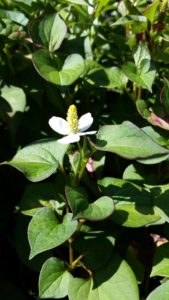 There are hundreds, even thousands of herbs that are used for cooking or used mainly as medicine. They grow naturally in many different climates around the world. What grows in one region may never be used in another part of the world. Herbs have been used for cooking and as medicine since ancient recorded history. Foraging for food meant foraging for medicinal herbs as well.
There are hundreds, even thousands of herbs that are used for cooking or used mainly as medicine. They grow naturally in many different climates around the world. What grows in one region may never be used in another part of the world. Herbs have been used for cooking and as medicine since ancient recorded history. Foraging for food meant foraging for medicinal herbs as well.
Common medicinal herbs are used in teas like mint, chamomile, rose hips, dandelion and nettles. Some insist a cup of chamomile tea is all that it takes to induce a restful sleep each night. Or some find a cup of peppermint tea after dinner can make the difference to settle their stomach and ensure a good nights sleep.
Medicinal herbs are what many pharmaceutical drugs were originally derived from. Once an herb’s active ingredient is identified a laboratory may synthesize the same chemical constituents and create a drug substitute. A common example is the foxglove plant that is now known as digitalis, a commonly prescribed medication to regulate the heart rhythm.
Origins of Herbal Medicine
Asian countries like China and India have the longest history of using herbs as medicine. Some of their longest living populations used only natural remedies as their medicine. The understanding of herbs as medicine became rather sophisticated and from this, ancient informative texts were written. These texts recorded not only the effects and conditions that were successfully treated using herbal medicine, but also the properties or constituents of each herb used as medicine.
To date, there are accessible translations of these ancient texts plus ongoing peer reviewed international scientific journals that review the effects of herbal remedies. These ancient texts plus modern research brings an abundance of accumulated knowledge as to how to use Chinese herbs as a source for medicinal remedies. Herbal pharmacists continue to research their medicinal uses, precautions, and interactions in medical conditions and have reported repeatable good results.
Herbs in Formulas
Prescribing Chinese and Japanese herbs is unique because single herb remedies are not usually recommended. The properties and characteristics of the individual herbs are taken into consideration and blended together to form a complete herbal formula. In this way the herbs chosen to be combined address not only the person’s symptom but also their underlying constitution or condition of health. The herbs are often modified as the health condition changes. This is unlike prescribing a single drug or herb where the condition of health or constitution is not taken into consideration. Often once a prescribed drug is recommended there are no dose modifications for years even if the health condition changes. And often many drugs are prescribed in combination creating even more confusion for the essential health condition to improve.
Prescribing herbs in a formula is more like nature working with nature. As the body’s condition of health changes just as nature does, the medicinal herbs are modified as a natural course according to how the condition of health progresses.
Vitamins or nutritional supplements although they are natural remedies, act more like a single agent in the body rather than like a whole food plant. They interact with a specific action in the biochemistry of the body. If an individual nutrient is found to be deficient, it may be replaced but doesn’t look at the whole body constitution. These nutrients are usually safe and don’t invoke adverse effects but are recommended based on a method of analysis and replacement of separate parts or missing links but not the essence of the health condition.
Categories of Herbs
Asian herbs are divided into several categories. Master herbalists learn more than 25 different categories and over 300 common herbs.
To understand some of the more commonly used herbs they can be summarized into three main categories.
- There are many herbs that primarily act to remove toxins. These treat infections and have anti-bacterial or anti-parasitic effects. Some of these herbs actions are on the liver, gallbladder, intestines or the kidney. For example, a Chinese herb called Artemisiae or Qing hao is used to treat malaria. In modern medicine, its main ingredient is now commonly used in a pill form.
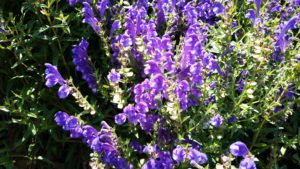 A smaller group of herbs contain the active ingredient berberine. It is well known to have an anti -bacterial effect. One of these herbs is commonly called Scute referring to its Latin name Scutellariae or Huang qin. It is especially used for respiratory and digestive conditions. This category of anti toxin herbs have the main function to treat infections including Lyme disease and are generally used for a short term only while the condition lasts.
A smaller group of herbs contain the active ingredient berberine. It is well known to have an anti -bacterial effect. One of these herbs is commonly called Scute referring to its Latin name Scutellariae or Huang qin. It is especially used for respiratory and digestive conditions. This category of anti toxin herbs have the main function to treat infections including Lyme disease and are generally used for a short term only while the condition lasts.
- Another even broader category of herbs are used to target many different specific conditions. For example there are herbs that are calming, improve circulation, reduce pain and inflammation, improve digestion, induce sweating or remove phlegm. They are added to a formula to address a symptom or condition and may be changed as the condition changes.
- The most flexible category of herbs that can be used continuously are Tonic herbs. They are recommended based on the underlying condition of health pertaining to the specific constitution of each person. They are often called adaptogens, meaning they adjust to the condition of health as it changes. They modulate along with the fluctuations particularly in the hormone and immune systems. Some of these herbs are commonly known and ultimately increase energy, stamina and long term health. Ginseng, although there are many types, is one of the strongest tonic herbs. It is not recommended for everyone but should be recommended based more on an individual’s health constitution. Some tonic herbs strengthen the blood more than increase energy levels. Ultimately these herbs improve the durability of the immune system.
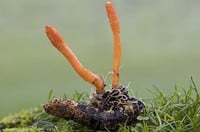 Mushrooms like Reishi and Cordyceps are well known herbs to enhance depleted health conditions. They contain a common active ingredients known as beta glucans. They have been shown to have a powerful effect on the immune system and act as an effective anti inflammatory. These herbs can usually be used over an extended time to counter weak conditions and enhance vitality. Dose adjustments are recommended as the condition of health changes.
Mushrooms like Reishi and Cordyceps are well known herbs to enhance depleted health conditions. They contain a common active ingredients known as beta glucans. They have been shown to have a powerful effect on the immune system and act as an effective anti inflammatory. These herbs can usually be used over an extended time to counter weak conditions and enhance vitality. Dose adjustments are recommended as the condition of health changes.
Herbs in Practice
In my practice, I recommend Chinese herb formulas in addition to nutritional support and acupuncture. Each person receives an individualized plan to support their unique health condition. Herb formulas are often used to treat respiratory and sinus and allergy conditions, digestion problems, to improve liver and gallbladder detoxification, for kidney and immune support, for calming and sleep disorders as well as for cholesterol and blood sugar conditions. Herbs can be taken in tablets, capsules, powders, tinctures and elixirs. Like food, prescribed herbal formulas can be taken daily or as advised. Formula combinations are changed pertaining to the changes in the health condition or according to the natural changes of the season. In my practice medicinal herbal formulas provide a natural whole food remedy that is effective and a gentler way to treat most health conditions. They can be combined safely with most other treatments. Herbs address what modern medicine typically doesn’t see in the underlying health condition. If there was more attention placed on improving the health condition by supporting the immune system there would be far less medications prescribed. And essentially, far better health.

Integrative Medicine for Lyme Disease
Lyme disease is often thought of as a modern-day hidden epidemic. Patients can present with Lyme-disease symptoms years after being bitten by a disease-carrying tick (Ixodes Pacificus). Common presenting symptoms include chronic fatigue, myalgias, migrating...
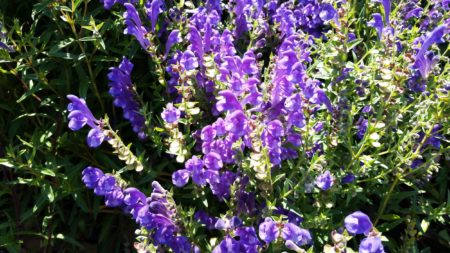
Growing Medicinal Chinese Herbs Organically
An interview with Peg Schafer from Chinese Medicinal Herb Farm, Petaluma, CA Written By: Cynthia Quattro P.A., L.Ac. DAOM “I would like to be an advocate not only for growers but for the plants themselves and of their medicine. It is important for people to know that...
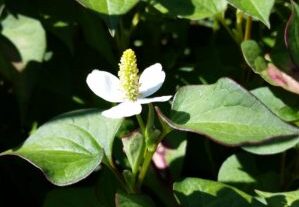
Herbal Medicine to Restore Health
It’s common that our first experience with herbal medicine is in the kitchen. Cooking with fresh culinary herbs is often the secret to distinct flavorful dishes. Favorite foods may come to mind based on the aroma of the herbs. They may evoke a special taste or smell...
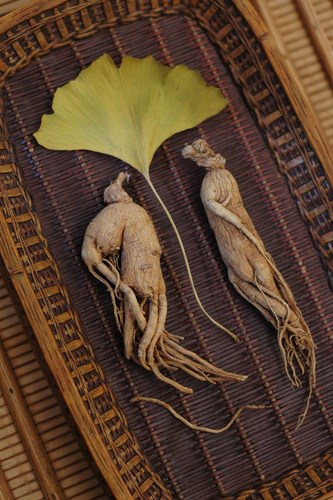
Healthy Aging and East Asian Medicine: Qi is the Secret
Healthy Aging and East Asian Medicine What limits us from living indefinitely? Is there a way to preserve life sustaining Qi reserves? It is known in fundamental science, that the...

Arthritis and acupuncture
Arthritis is not just a single disease; it is a complex disorder involving multiple organ systems. Two of the most common forms of arthritis are categorized as osteoarthritis and rheumatoid arthritis. While these two forms of arthritis have very different causes, risk...
